More than half of Americans think Donald Trump has a favorable opinion of Vladimir Putin
On the eve of critical summit meetings between President Trump and members of the North Atlantic Treaty Organization (NATO) and Russian President Vladimir Putin, there may be guidance from American public opinion about last month’s meeting with North Korean leader Kim Jong-un.
The latest Economist/YouGov poll suggests that the President can motivate his own supporters but that there is also a time limit on public perceptions of a good summit. And there are some things a meeting cannot change.
That includes how Americans see friends and enemies.
North Korea is seen as an enemy. Two in three Americans continue to view North Korea as a threat to the United States. Only 20% say it’s even somewhat likely that North Korea will give up its nuclear weapons (an outcome Americans have always been skeptical about, both before and after the June Trump-Kim Jong-un summit, and despite the President’s assurances that there was a solution). Just 8% have a favorable opinion of Kim. Four times as many (33%) believe President Trump views Kim favorably. But the meeting? Americans are less likely to view it as a success now than they were in its immediate aftermath.
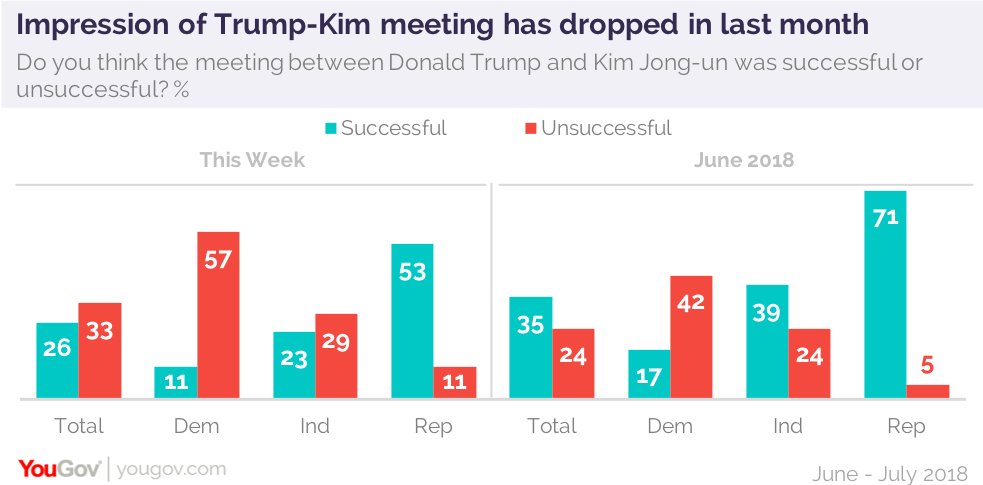
As time passed, the percentage of independents viewing the Trump-Kim summit as a success declined 16 points, and even Republican perception of success dropped 18 points. Democrats were negative soon afterwards, and they are even more so today.
[Some of this increased skepticism may have come earlier in last week due to the failed attempt at a meeting between Secretary of State Mike Pompeo and Kim.]
Looking ahead, the NATO and Putin meetings provide more examples of public opinion differing from the President’s, even as the President is influencing opinions about NATO within his own party. In principle, Americans like NATO: 44% have a favorable opinion of it, 25% do not. But partisan lines are shifting as the President continues to criticize NATO even as he meets with them. Democrats have become more positive about NATO in just the last week, while Republicans have become more negative.
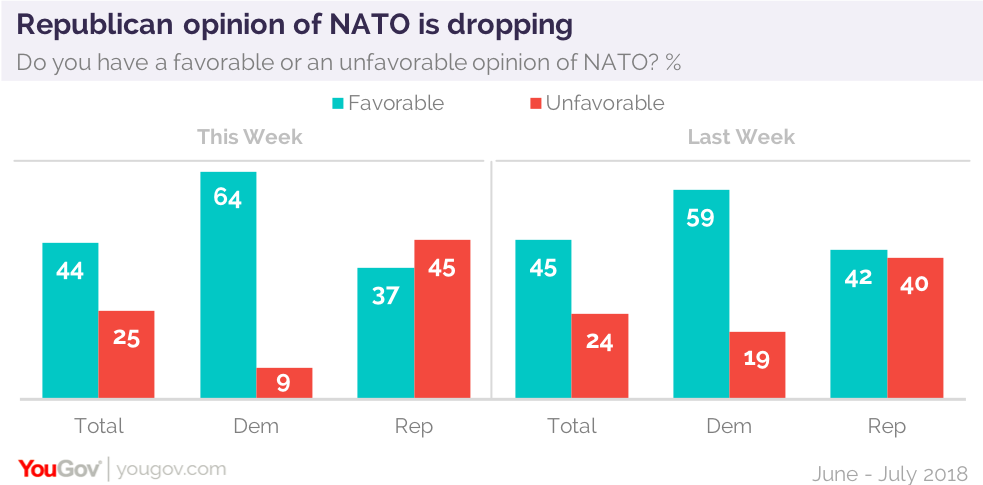
Both Republicans and Democrats agree that the United States needs to maintain its commitment to defend NATO countries if they are attacked. Overall, 53% want the US to maintain this commitment, 17% disagree. A majority of Republicans also agree, but by the narrower margin of 51% to 28%. Democrats want to keep the commitment by nearly nine to one.
The President’s continuing negative comments about NATO allies may continue to move some Republicans against the alliance. As many Republicans this week say the US should leave NATO as say it should remain, another shift from just a week ago, when a plurality of Republicans favored remaining in the group. Independents continue to support remaining in the alliance.
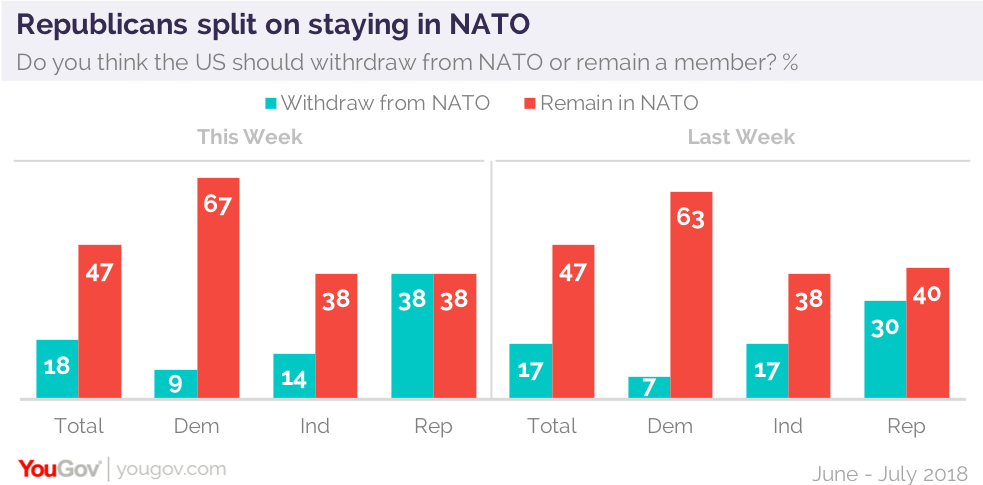
As the Trump-Putin meeting nears, Americans express dissatisfaction with the President’s management of relations with Russia, a country Republicans and Democrats alike agree is an unfriendly nation. Overall, only 31% approve of the way the President is handling Russia, down five points in the last week; 44% disapprove.
The public disagrees with the President when it comes to the Russian President. Republicans, Democrats and independents alike don’t like Putin, but most believe President Trump does.
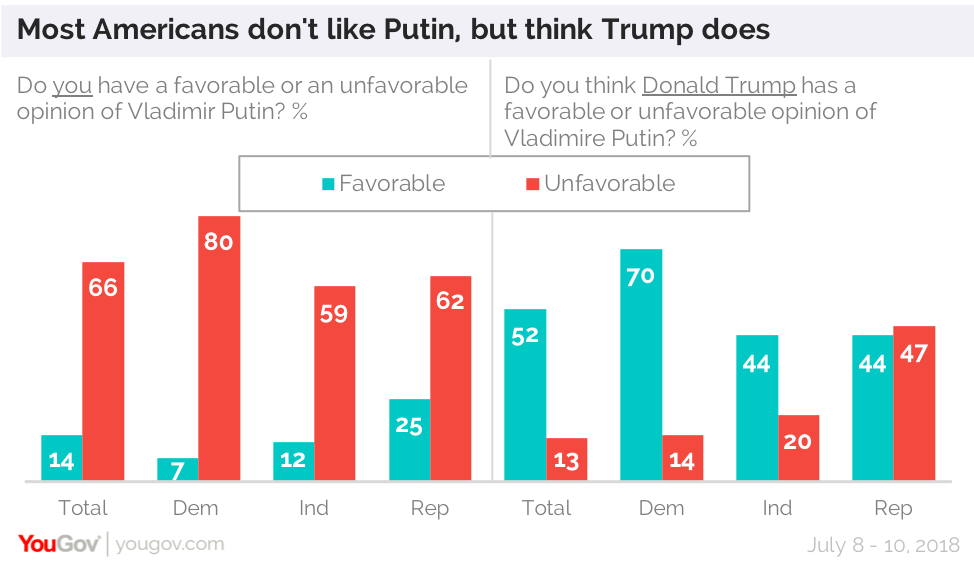
One in four Republicans have a favorable opinion of the Russian President; even more think the American President likes his Russian counterpart. There may also be a sense that Putin may have an advantage. Half the American public sees Trump as a strong leader, but even more (77%) say Putin is. As many see Putin as a good negotiator as say that about the US President; three times as many think President Trump is a bad negotiator as say that about Putin.
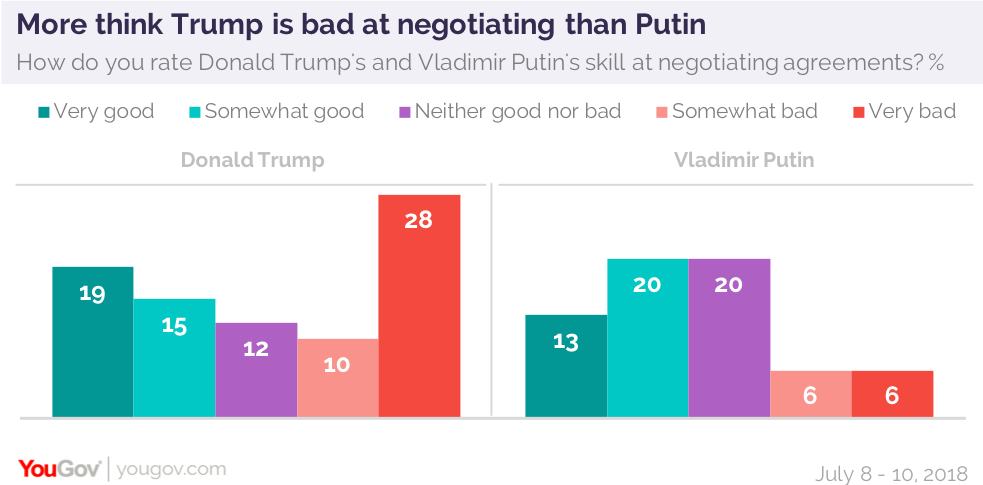
As has happened with opinions about NATO, there is partisan learning when it comes to trade: while the public overall continues to favor negotiating more trade agreements, by 40% to 22%, Republican opposition to these agreements has increased in the last month. In early June, less than a quarter of Republicans (23%) opposed negotiating more trade agreements, while now nearly a third (32%) do.
Foreign trade and foreign policy are not the President’s strongest issues: in both cases, more disapprove than approve, much as is the case for his approval rating overall.
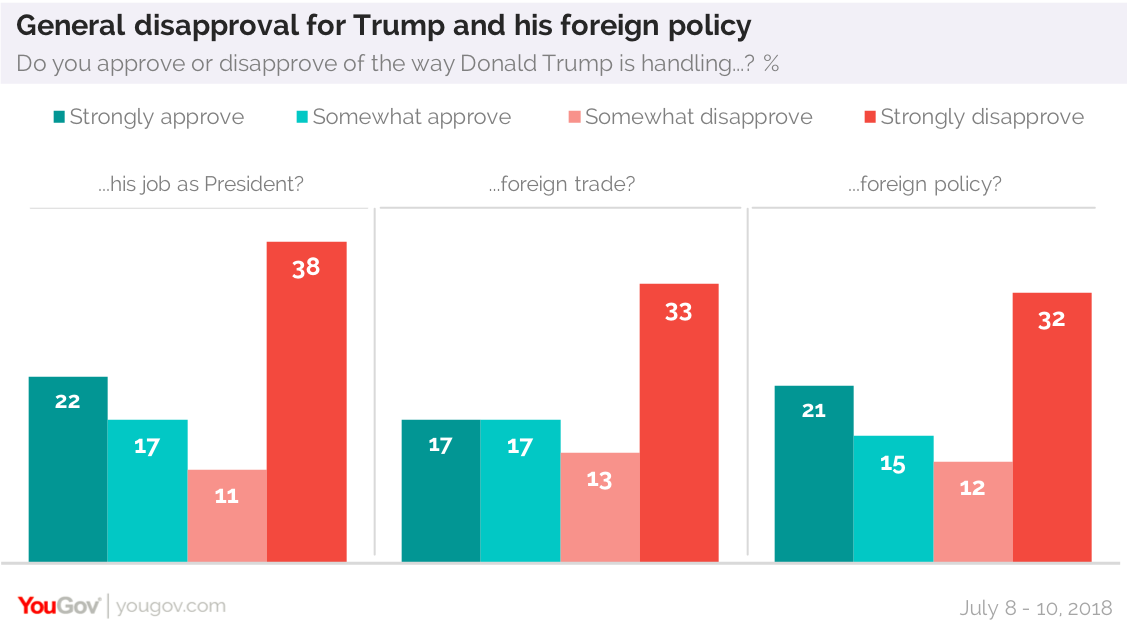
The President does best on the economy and terrorism: on both the public is closely divided, with a two-point margin of approve over disapprove.








